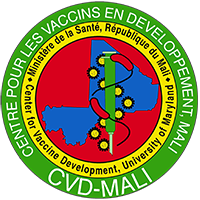The COVID-19 pandemic in Africa has arrived at a critical point. We are seeing increases in deaths and overwhelmed health systems, in countries that often lack the infrastructure to properly record cases and respond.
I see on the ground the toll all this is taking – on communities, on health workers and on vulnerable populations. West Africa is also dealing with more than one epidemic; as well as COVID-19, we have an ongoing security epidemic and the threat of another Ebola epidemic. COVID-19 has left us exposed and that increases the chances of other health threats snowballing and costing us at least a decade or more of progress.
But there are green shoots of hope. Not the least of which is the incredible efficiency with which the COVID-19 vaccines were developed. These are incredible and inspiring achievements, and a lesson in global collaboration. But this spirit of collaboration is still needed as we move now to the crucial vaccine roll-out.
Engage and communicate with communities!
Our success in defeating the pandemic globally will depend on successfully defeating the virus everywhere. This means that the vaccine roll-out in the complex and insecure Sahel region will have to be implemented successfully.
During my career in the field, in the trialling and development of vaccines, I have come to understand that the success of any vaccine and its roll-out begins and ends with the community. The importance of effective communication can never be underestimated. That is true now more than ever, as we see the effects of the infodemic that has accompanied the clinical pandemic.
When working on the Ebola vaccine trial, for example, there were times when communities believed that we had come to infect them – and this sometimes led to our own lives being threatened. It took time, patience and close work with those communities to overcome their fears and misunderstandings. The COVID-19 vaccines will require the same patience and community engagement to ensure the required uptake of the vaccine.

Any vaccine campaign will also need to rely on a strong community health system. Rather than lurch from health crisis to health crisis, we now need to invest properly in our primary healthcare systems. Our community networks are best placed to identify those at risk; the people who live in and serve their communities are the ones who will reach populations and administer the vaccine.
Please, let us use this moment to start investing in robust data systems which will make our health systems more resilient to future health crises.
Prof Samba Sow
One vital aspect within that involves data. I fear that we do not understand, even now, the reach of COVID-19 in Africa, because of weak reporting systems and unreported deaths in the community. If we are to reach the communities most vulnerable to COVID-19, we need to understand who and where these people are and ensure their vaccinations are recorded – especially if second doses are needed. Please, let us use this moment to start investing in robust data systems which will make our health systems more resilient to future health crises.

I know that logistics will be problematic too, of course they will. But I also know that Africa has excelled at campaigns in the past and have every faith that we will rise to the challenge this time too. I would only ask, again, that we make sure that investments in COVID-19 vaccine campaigns also enable us to build the foundations across West Africa that will enable us to see a positive legacy grow out of this terrible pandemic.
Vaccine equity is essential
All of this, however, depends on vaccine availability – and this is perhaps the most basic question we now face. Already, discussions have begun about ensuring that all countries get their fair share of the global vaccine stock, and that we avoid a situation in which richer countries are able to stockpile vaccines, while countries of the global south largely go without.
The COVAX facility, led by WHO, is a global initiative to ensure rapid and equitable access to COVID-19 vaccines for all countries regardless of economic status. This is crucial, not just as a way for low-income countries to access vaccines, but also for the global community to show its commitment to equity.
Ultimately, epidemiology is a plea for equity. A commitment to vaccine equity isn’t just important for reasons of fairness or justice, it is a non-negotiable factor in ending the pandemic.
No country will be safe until all countries have been vaccinated.
Samba O Sow, Director General, CVD-Mali
